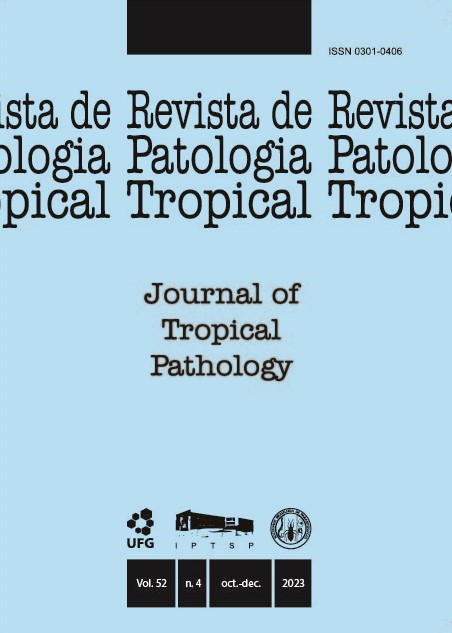Effects of the Covid-19 pandemic on the actions of the dengue control program in a metropolitan area in the southeast region of Brazil
DOI:
https://doi.org/10.5216/rpt.v52i4.75464Resumo
The COVID-19 pandemic represents a challenge for health systems, straining available material and personal resources, interfering with other surveillance and control programs. Dengue is epidemiologically the most relevant urban arbovirus of Latin America, being endemic in the metropolitan municipality of Contagem in Minas Gerais State, southeast region of Brazil. This is an ecological study that aimed to analyze the effects of the COVID-19 epidemic on dengue control and surveillance in Contagem in the year of 2020. In 2020, the municipality presented more dengue cases than expected for non-epidemic years, with a sharp decline from epidemiological week 11 onwards, coinciding with the increase in COVID-19 cases. There was also a reduction in vector control, with the national suspension of the second Survey of Rapid Infestation Index of Aedes aegypti and a significant decrease in the installation of oviposition traps, properties visited for monitoring and that received focal treatment. Our results and the difficulties observed in different instances of dengue control corroborate the hypothesis of weakening of the surveillance program and possible underreporting of dengue cases as a result of the COVID-19 emergency.
KEY WORDS: COVID-19; dengue; epidemiology; syndemic; public health surveillance.
Downloads
Downloads
Publicado
Como Citar
Edição
Seção
Licença
The manuscript submission must be accompanied by a letter signed by all authors stating their full name and email address, confirming that the manuscript or part of it has not been published or is under consideration for publication elsewhere, and agreeing to transfer copyright in all media and formats for Journal of Tropical Pathology.

